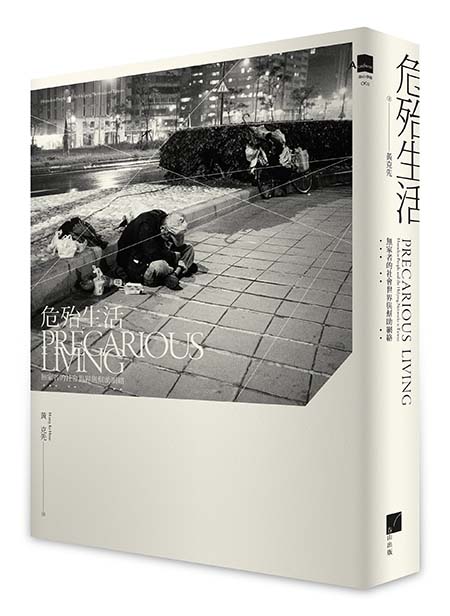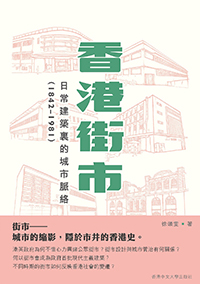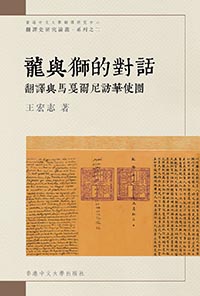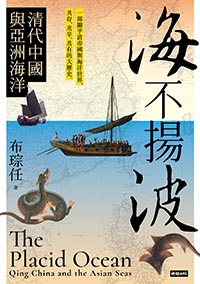IBP 2023 Chinese Language Edition
Total number of books submitted: 16
Organizing Institute: Wan Boo Sow Research Centre for Chinese Culture, Department of Chinese Studies, National University of Singapore
Secretary: Ying-kit Chan
Reading Committee Members: Egas Moniz Bandeira and Li-Chuan Tai (Humanities); Chang-Yau Hoon and Kwangmin Kim (Social Sciences)
Sponsor of the IBP 2023 Chinese Language Edition: Wan Boo Sow Research Centre for Chinese Culture, Department of Chinese Studies, National University of Singapore

IBP 2023 Chinese Language Winner
AUTHOR: 黃克先 Ke-hsien Huang
TITLE: 危殆生活:無家者的社會世界與幫助網絡 (Precarious Living: Homeless People and the Helping Networks in Taiwan)
PUBLISHER: 春山出版有限公司 SpringHill Publishing Ltd., 2021
Precarious Living is a comprehensive sociological study on the precarity of homeless (or "unhoused") people at a park in Taiwan. The book examines their personal trajectory and social life in the context of the moral economy and helping networks surrounding this marginalized group. It is truly a gripping ethnography of homelessness in Taiwan. It paints a vivid picture of the networks formed by Taipei's homeless people to fulfil their basic human needs, as well as of the institutions that support them while exploiting their fragilities. The book offers not only keen scholarly insights but also a powerful intervention calling for a fairer society and economic system.

IBP 2023 Chinese Language Shortlist
 AUTHOR: 徐頌雯 Chung Man Carmen Tsui
AUTHOR: 徐頌雯 Chung Man Carmen Tsui
TITLE: 香港街市:日常建築裏的城市脈絡 (Everyday Architecture in Context: Public Markets in Hong Kong (1842–1981))
PUBLISHER: 香港中文大學出版社 The Chinese University of Hong Kong Press, 2022
Everyday Architecture in Context: Public Markets in Hong Kong (1842–1981) takes its readers into a deep dive into the past and present of public markets in Hong Kong. The book is not only a richly illustrated book about architecture, but also a social and economic history of Hong Kong centered around some of the spaces that have most profoundly shaped the city. Inviting deeper reflections on essential questions of modern urbanism, it is also immensely insightful for readers from other urban contexts.
 AUTHOR: 蕭鳳霞 Helen F. Siu, 余國良 Kwok-leung Yu (ed.)
AUTHOR: 蕭鳳霞 Helen F. Siu, 余國良 Kwok-leung Yu (ed.)
TITLE: 踏跡尋中:四十年華南田野之旅 (Tracing China: A Forty-Year Ethnographic Journey)
PUBLISHER: 香港中文大學出版社 The Chinese University of Hong Kong Press, 2022
Tracing China: A Forty-Year Ethnographic Journey benefits from the author's four decades of fieldwork experience in the southern provinces of China. The anthropological work presented in this book is insightful and astonishing, and the part-scholarly, part-autobiographical approach renders it a most engaging read.
 AUTHOR: 王宏志 Lawrence Wong
AUTHOR: 王宏志 Lawrence Wong
TITLE: 龍與獅的對話:翻譯與馬戛爾尼訪華使團 (Dialogue Between the Dragon and the Lion: Translation and the Macartney Mission)
PUBLISHER: 香港中文大學出版社、香港中文大學翻譯研究中心 The Chinese University of Hong Kong Press, Research Centre for Translation, CUHK, 2022
Dialogue Between the Dragon and the Lion: Translation and the Macartney Mission illuminates a historic episode in East-West relations: the 1793 Macartney Embassy to Qing China. Unlike most studies that focus on British arrogance and Chinese resistance to change, this book highlights the shifting dynamics of power and diplomacy through its expert analysis of the role of translation in the ill-fated exchange, which was marked by biases, misunderstandings, and simply incompetencies.
 AUTHOR: 布琮任 Ronald C. Po
AUTHOR: 布琮任 Ronald C. Po
TITLE: 海不揚波:清代中國與亞洲海洋 (The Placid Ocean: Qing China and the Asian Seas)
PUBLISHER: 時報文化出版 China Times Publishing Company, 2021
The Placid Ocean: Qing China and the Asian Seas examines the maritime strategies of the Qing Empire and debunks the long-held view that the Qing dynasty was a land-based empire that lacked a maritime consciousness. The book is a captivating exploration of the Qing state's shifting policies toward the maritime space. Challenging our vision of the Qing as an essentially land-based continental empire that was not interested in the oceanic domain, it considerably expands the scope of New Qing History, with significant implications for how we conceive of China's role in the history of globalization.